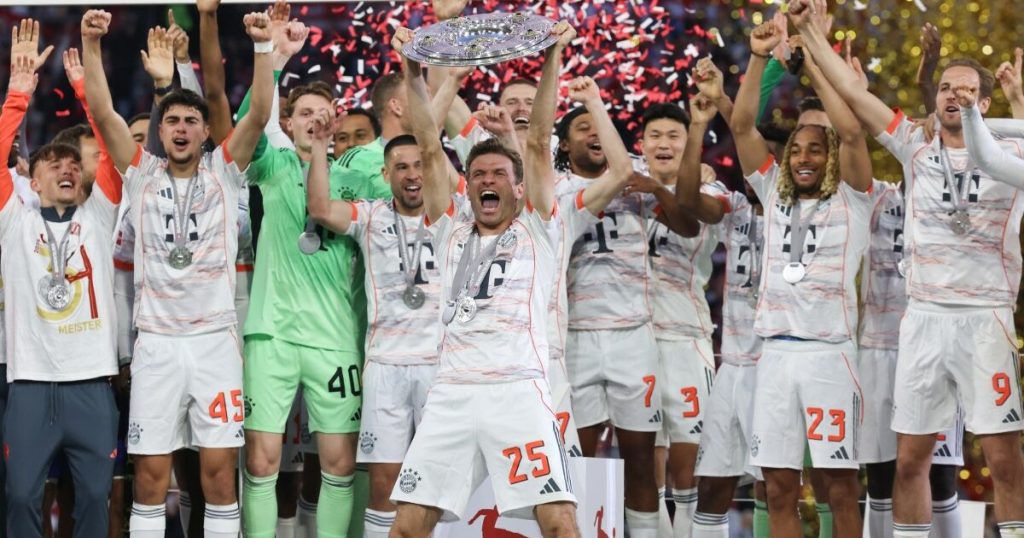Bayern Munich’s decision to restructure its partnership with Rwanda, shifting from a tourism-focused sponsorship to a youth development initiative, marks a significant turning point in the club’s engagement with the African nation. This move comes amidst escalating controversy surrounding Rwanda’s alleged involvement in the ongoing conflict in the neighboring Democratic Republic of Congo (DRC) and accusations of human rights abuses. The original agreement, signed in 2023 and slated to run until 2028, included prominent “Visit Rwanda” advertising at Bayern’s Allianz Arena, mirroring similar deals struck by other European football giants like Arsenal and Paris Saint-Germain. However, growing criticism from fans and human rights organizations regarding Rwanda’s role in the DRC conflict, coupled with internal pressure from within the club, ultimately led to the reevaluation and subsequent alteration of the partnership’s focus.
The escalating conflict in the eastern DRC, marked by increased violence and displacement, has intensified scrutiny on Rwanda’s government. Reports of Rwandan support for the M23 rebel group, which has been accused of atrocities against civilians, have fueled international condemnation. The capture of key cities like Goma and Bukavu by the M23, allegedly with Rwandan backing, further exacerbates the situation and adds to the mounting evidence against Rwanda’s government. The United Nations estimates thousands of casualties resulting from these attacks, underscoring the gravity of the human rights crisis. For Bayern Munich, the association with Rwanda became increasingly problematic, potentially tarnishing the club’s image and alienating a segment of its fanbase that valued ethical considerations alongside sporting success.
Bayern Munich’s initial response to the mounting criticism was to send staff to Rwanda to assess the situation firsthand. While the details of this assessment remain undisclosed, it appears to have played a significant role in the club’s decision to recalibrate its relationship with Rwanda. The move away from a tourism-focused campaign, a cornerstone of the original agreement, suggests an acknowledgment of the complex and sensitive geopolitical realities within the region. By shifting the partnership’s emphasis towards football development, particularly through the expansion of the FC Bayern Youth Academy in Kigali, the club aims to distance itself from the political controversies while maintaining a presence in Rwanda.
This shift in focus, while seemingly a compromise, raises questions about the effectiveness and ethical implications of such partnerships. Critics argue that even with the revised focus on youth development, Bayern Munich remains implicitly linked to the Rwandan government, thereby potentially legitimizing its actions and providing a platform for sportswashing. Sportswashing, the practice of using sports sponsorships to improve a nation’s or entity’s reputation and deflect attention from controversial actions, has become an increasingly prevalent concern in the world of professional sports. The Rwandan government’s investment in sports partnerships with high-profile European clubs has been viewed by some as a strategic attempt to project a positive image on the global stage amidst allegations of human rights abuses and regional destabilization.
The decision by Bayern Munich also reflects a broader trend of increased scrutiny of sports sponsorships and partnerships, particularly those involving governments with questionable human rights records. Fans, human rights organizations, and even players are becoming more vocal in their demands for greater transparency and accountability from sports clubs regarding their sponsorship deals. The pressure exerted by Bayern Munich fans, who publicly displayed banners criticizing the Rwandan deal, exemplifies the growing power of fan activism in shaping club decisions. This incident demonstrates the potential for fan engagement to hold clubs accountable for their choices and influence their ethical considerations.
In conclusion, Bayern Munich’s restructuring of its partnership with Rwanda represents a complex and multifaceted issue with far-reaching implications. While the club’s stated intention to prioritize youth development is commendable, the move also raises critical questions about the ethics of engaging with governments accused of human rights abuses. The incident highlights the growing tension between the commercial interests of sports clubs and the ethical responsibilities they bear as influential global entities. It further underscores the increasing power of fan activism and the growing demand for transparency and accountability in the world of sports sponsorships. As such, the Bayern Munich-Rwanda case serves as a crucial case study for the future of sports partnerships and the evolving relationship between sports, politics, and human rights.


